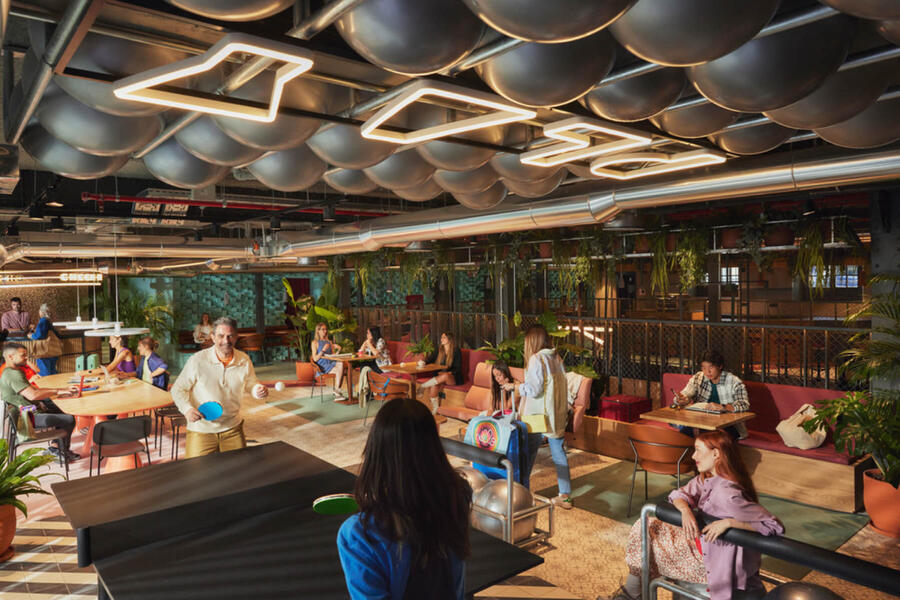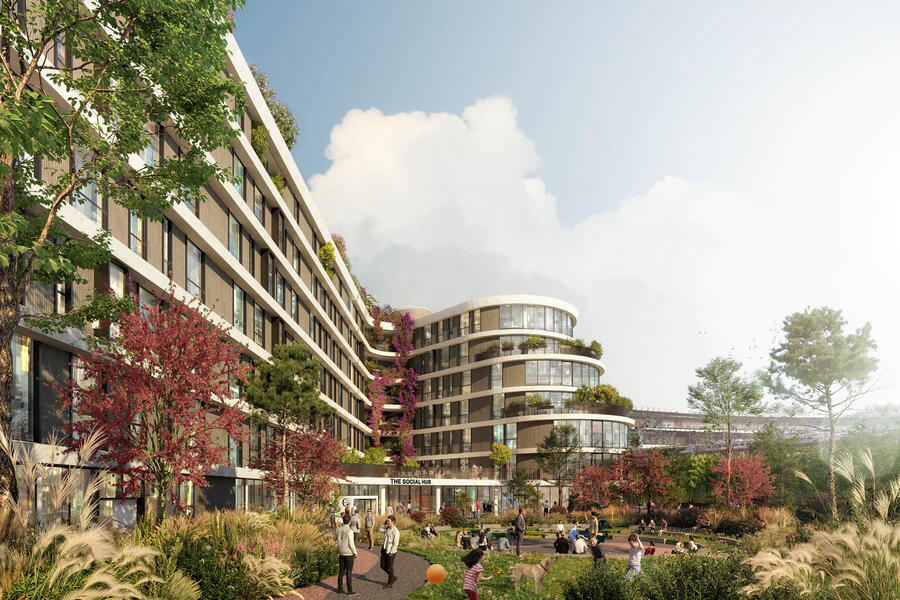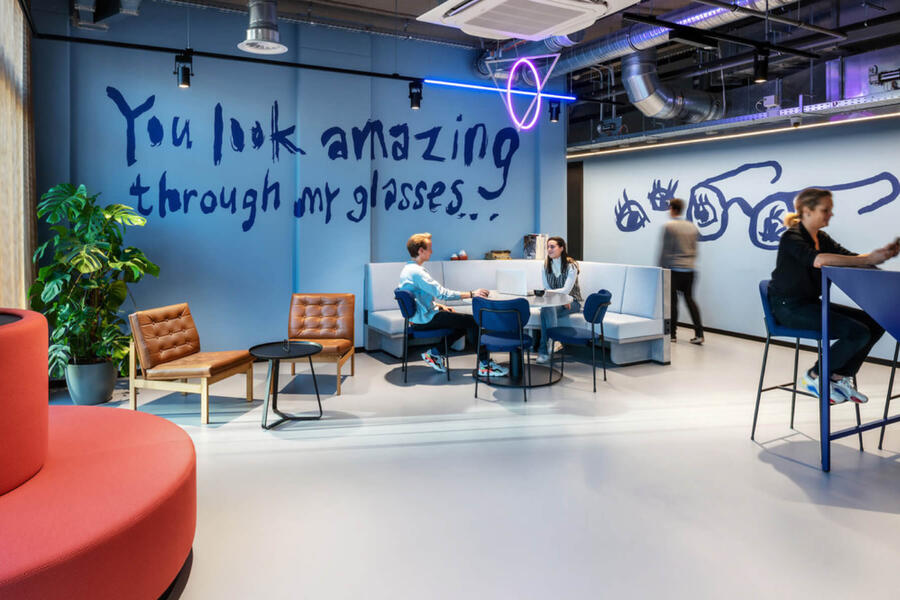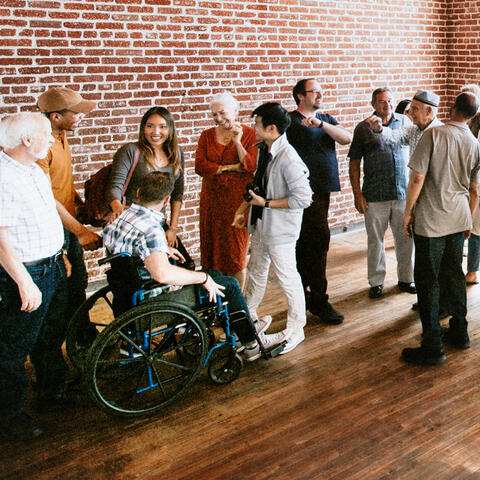
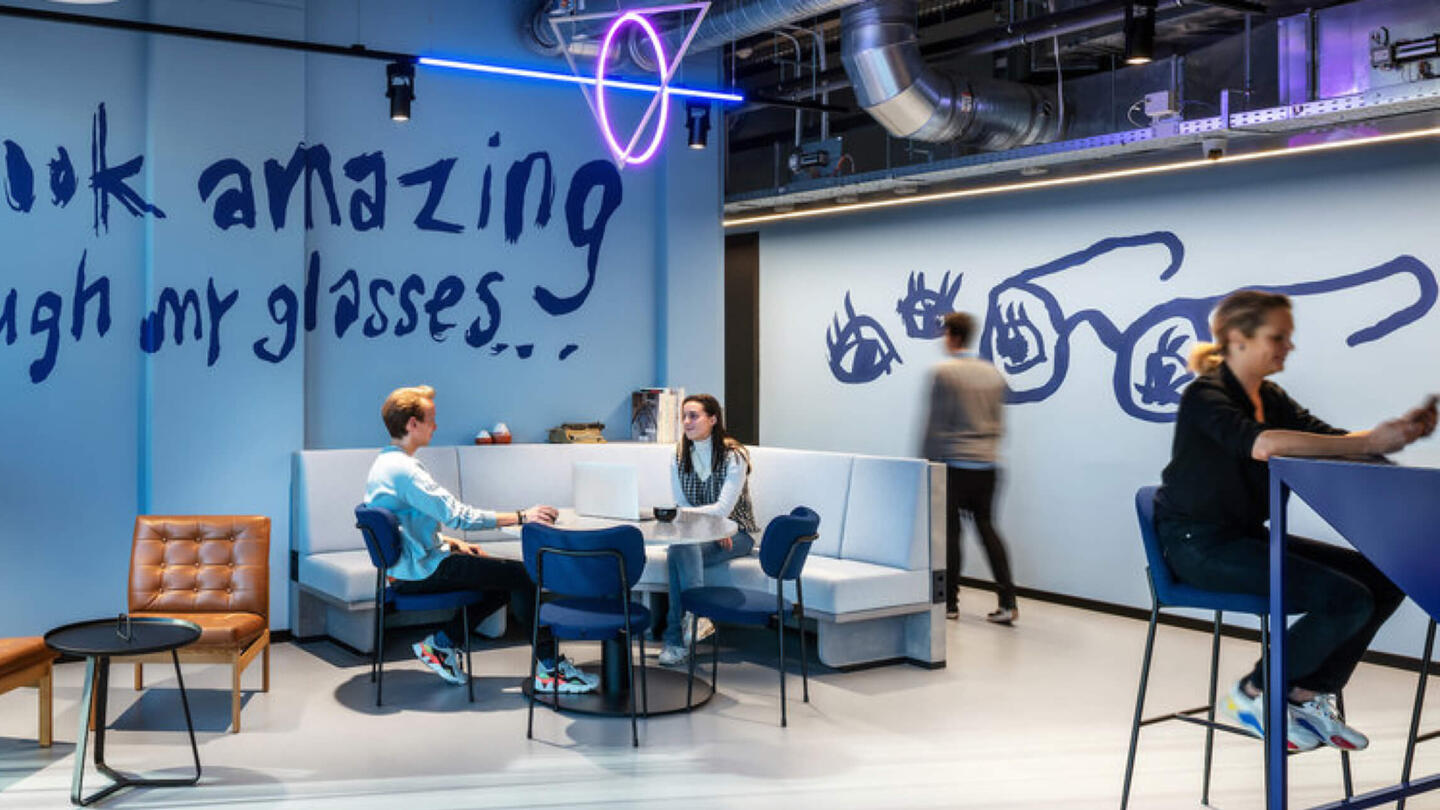
This starts with providing them with the resources and tools they need to be successful. In 2022, UniCredit, in collaboration with SACE, supported The Social Hub (formerly The Student Hotel) project with a €145 million social and environmental impact financing loan for the development of two innovation and creativity hubs. These hubs will open in 2024 and aim to connect different communities of people across all walks of life in Rome and Florence.
The Social Hub and UniCredit agreed to include impact financing terms in the form of a discount on the interest rate, which The Social Hub has committed to reinvest by providing students from disadvantaged socio-economic backgrounds with scholarships in the form of rent reductions. The project will support the regeneration of the San Lorenzo district in Rome and the Belfiore district in Florence, revamping the areas for the local communities and expanding the availability of student housing in both cities.
The Social Hub is known for its commitment to building its premises in a responsible and impactful way to benefit both the local community and the environment. Backed by UniCredit’s financial support, together with SACE, the San Lorenzo district in Rome and the Belfiore district in Florence will benefit from more student housing opportunities which will in turn support the wider positive development of these inner-city areas. The project also increases the availability of quality accommodation, supporting a sector that was harshly hit by the pandemic.
We have long recognised the importance of creating meaningful opportunities in the heart of our local communities. Through partnerships like those with The Social Hub, we are empowering these communities to unlock their fullest potential.
A conversation with...
Marco Radrizzani, Relationship Manager and Charlie MacGregor, The Social Hub CEO
Why are you particularly proud to have worked on this project?
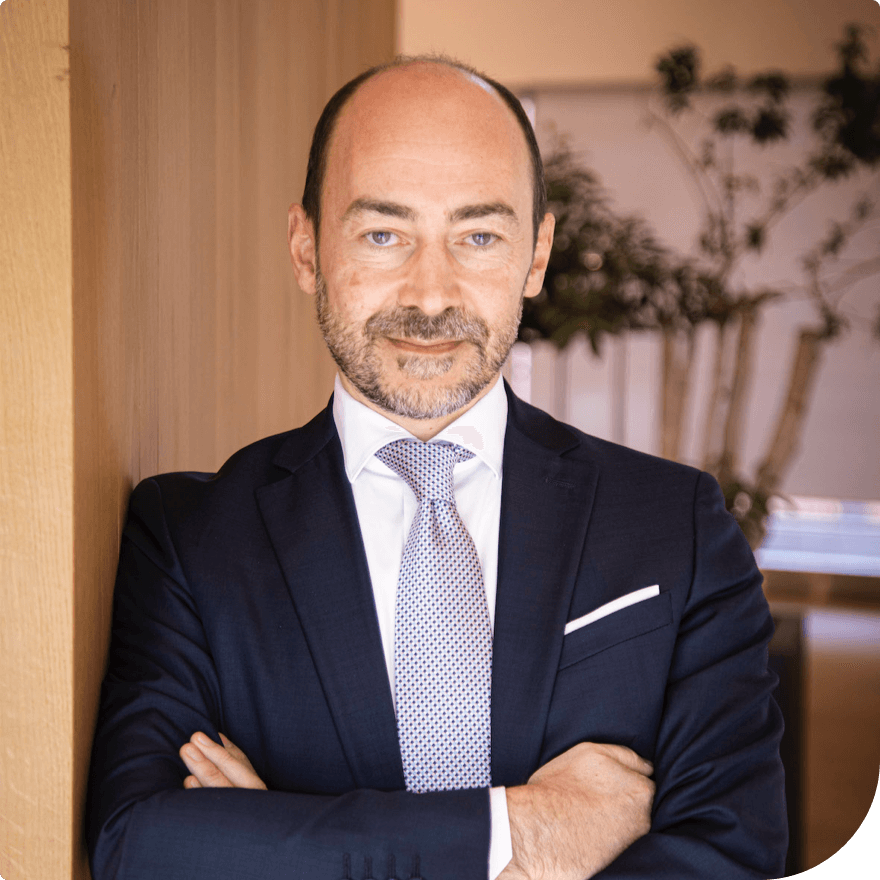
Marco Radrizzani,
Relationship Manager
RADRIZZANI: The Social Hub (TSH) Group has a long-standing relationship with UniCredit, starting with the first TSH Italian investment in Florence Lavagnini, followed by Bologna and another in Vienna. With the aim of supporting The Social Hub’s development plans in Italy, we are now particularly proud to have arranged and fully underwritten an ESG impact financing of €145 million, partially guaranteed by SACE, for the development of two new locations in Rome San Lorenzo and Florence Belfiore supporting approximately 1,000 new rooms, common areas, coworking spaces and some amenities.
Both projects focus on two large areas, abandoned for years, which needed to be requalified to give back to their communities. Thanks to the new financing, these two areas will now be transformed into innovation and creativity hubs, aimed at connecting different communities of people, especially younger generations. We are particularly proud of this transaction because it was originated, structured, and signed during the pandemic and UniCredit proved to be a more than reliable partner for The Social Hub.
How has this contributed to our Bank’s overall strategy?
RADRIZZANI: The deal is totally aligned to our bank’s overall strategy in doing sustainable business in favour of all our stakeholders, our clients and all the communities in which we operate. The Social Hub Belfiore and The Social Hub Rome will meet higher quality standards in term of construction and sustainability, fitting the EU taxonomy criteria, and will receive the BREEAM Certification. Both the projects will enhance the quality of life in the surrounding neighbourhood, giving a new vibrancy to abandoned areas with contemporary and attractive buildings, and creating new locations accessible by local communities.
The funding includes several ESG and impact financing terms, such as a discount rate that The Social Hub will reinvest by providing students from disadvantaged socio-economic backgrounds support through rent reduction. This will also increase the positive social impact of both developments. Moreover, the project is in-line with the goals of the Green New Deal to promote a modern, circular, sustainable, and resilient Europe, which is why it received the SACE green guarantee.
How did this project enable us to deliver on our Purpose: Empowering communities to progress?
RADRIZZANI: The financed project, as said, consists in the transformation of two large areas in Rome and Florence into hubs for innovation and creativity. The aim of these is to forge connections between people, young people especially. This will also increase the availability of quality accommodation in Rome and Florence, supporting a sector that was impacted heavily by the pandemic. The overall investment, amounting to approximately €300 million, will be funded 50/50 by equity/debt and will generate a significant impact in terms of employment on both the development and management phase, with a positive return on the territories.
This impact financing contributes to a more inclusive society. Thanks to the cooperation among various stakeholders in the education ecosystem, impact finance is an enabler of social innovation models, aiming at facilitating access to student houses for those from disadvantaged backgrounds. In Italy, likewise in other European countries, there is a huge gap between offer and demand in terms of student accommodations. Impact financing can help to fill that gap.
The deal is a testament to UniCredit's commitment to promoting and supporting the sustainable development of our territories, which is central to our Group's core Purpose of empowering our communities to progress.
What does the project mean for your company?
MACGREGOR: The agreement aligns with our philosophy to create future-proof projects that are developed and operated sustainably. We know that as an organisation we have a responsibility to society and the environment, so we choose partners and projects that will allow us to improve our positive impact for both. Through UniCredit, we have found a trusted partner that shares similar values with a drive for impact. The Social Hub rebranded in late 2022 from simply being known as a student hotel to a name that puts “Social” central to its identity as a hybrid hub, connecting guests and the local community. The project with UniCredit means we can accelerate our mission and vision by realising these incredible projects in Rome and Florence together.

Charlie MacGregor, The Social Hub CEO
Why was this important for The Social Hub’s commitments?
MACGREGOR: The sustainable and impact financing terms align with The Social Hub’s continued commitment to minimise our environmental impact and maximise our impact on local communities as part of our growth strategy. With an aim to double our portfolio in the coming years, we must do this in the most sustainable way – from financing to materials and how we interact with our communities, these are all considerations we make to increase our positive impact. We are proud to be able to redevelop these previously underdeveloped areas in Rome and Florence to create exciting locations where local communities, guests, students, entrepreneurs and other companies can come together.
The Social Hub is setting up Science Based Targets this year to better measure our impact goals, and the financing terms agreed by UniCredit means we can accelerate and align our projects to these goals.
Can you tell us about the support you received from UniCredit?
MACGREGOR: UniCredit played a key role in getting the financing for these projects in place, acting as Arranger, Underwriter, Bookrunner and Agent for the Florence and Rome projects. The loan follows existing financing agreed between The Social Hub and UniCredit for hybrid hospitality model locations in Florence Lavagnini, Bologna, and Vienna. We know each other well due to our existing relationship, and it has been a positive outcome of these projects to continue with their support. We partnered with UniCredit to create a sustainable financing solution as well as leverage their network to bring SACE and other lenders on board. By working together with their ESG team, we were able to develop the sustainable financing component of the scholarship.
